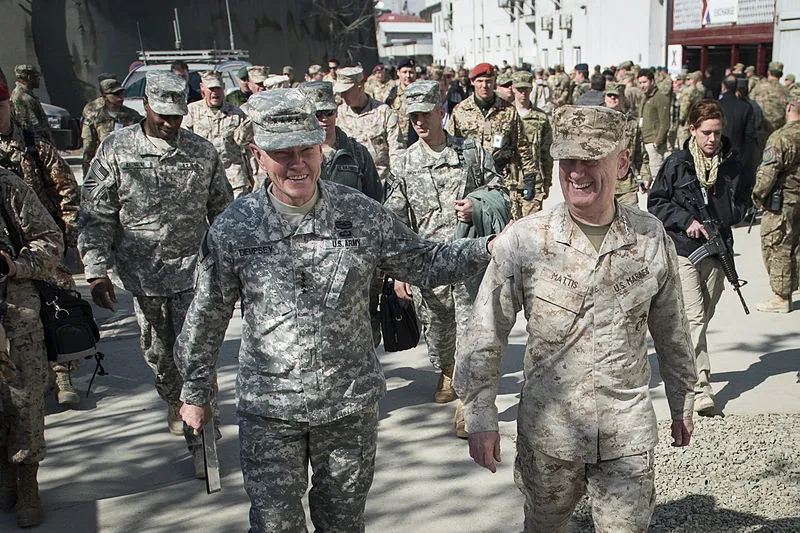With the start of Cabinet nomination confirmation hearings, analysts are starting to get a better sense of the policy positions of Donald Trump's Cabinet. His nominee for Secretary of Defence, General James Mattis, appeared before the Senate Armed Services Committee (SASC) on Thursday. Mattis, a highly regarded scholar-warrior is almost unique in the incoming Trump Cabinet in that he enjoys broad support among both Democrats and Republicans in Washington.
Mattis' written statements to the SASC, as a part of the confirmation process, provide a window into his way of thinking about China, Pakistan and the US-India relationship. As such, Indian policymakers now have a much better sense of what to expect — and what not to — from the Pentagon he will now lead.
Analysts who've studied the trajectory of the US-India relationships in the recent past will attest to the fact that the US Department of Defence is one of the staunchest supporters of the recent uptick in that relationship.
Read Also | < style="color: #960f0f">Donald Trump’s generals: Why 9/11 will shape what follows 11/9
One could argue, for example, that Ashton Carter, Obama's Secretary of Defence, was a driving force on the American side behind the slew of recently-signed military cooperation arrangements between the two countries. But it can also be argued that there is a disconnect between how the US military sees India's role — and concerns — in the eastern Indian Ocean versus how it perceives India as a player in the West.
For India, this is a question of how the US could assist New Delhi in meeting challenges emanating from China (the purview of the US Pacific Command) as well as that from Pakistan (the purview of the US Central Command). Mattis' responses to questions submitted to the SASC unfortunately shows that this disconnect is unlikely to be bridged immediately.
Take his position on China — and the future of the so-called 'American pivot to Asia'. Mattis noted that the US "must seek to engage and collaborate with China where possible, but also be prepared to confront inappropriate behaviour if China chooses to act contrary to our interests" and that Chinese behaviour has "led countries in the region to look for stronger US leadership".
He was also oblique about the American One-China policy, a much-discussed subject following Taiwan president Tsai Ing-Wen's phone call to Trump, noting he would communicate "the likely consequences of any changes to US policy" to the president and the Congress if asked.
Read Also | < style="color: #960f0f">US President-elect Donald Trump’s generals Part 2
On India, Mattis was as enthusiastic as Carter has been. Calling the US-India relationship one of "utmost importance", he reiterated American support for Modi's 'Act East' policy, which seeks to make India a major military and diplomatic power in Asia-Pacific and thereby balance China.
The foundation of the US-India long-term strategic relationship is based on a "convergence of interests and shared democratic values", Mattis noted.
All this talk of shared values warms the cockles of Indian hearts and makes for great press copy. But the statements have to be taken in the context of the overarching tone of the incoming commander-in-chief, which is that transactional deal-making is likely to become the cornerstone of Trump's foreign policy. The theme of shared values is a great rhetorical device employed by western governments in the recent years seeking better relations with India. But it would be a mistake to think that values alone will drive the relationship forward. Remember that this is a government to be led by a man who is willing to make common cause with Vladimir Putin.
On Pakistan, Mattis' statements have been tremendously disappointing. The gist of his arguments point to a US policy of more-of-the-same. Mattis notes that as a sign of its commitment to fighting terrorism, the Pakistan military has suffered significant casualties in its counterinsurgency effort. He also notes that if confirmed, he will work with other arms of US government to incentivise Pakistan's cooperation on issues critical to our interests and the region’s security. New Delhi should prepare for more coddling of Pakistan.
This must come as great disappointment to many in India who had hoped that a Trump White House will finally put an end to Pakistan's belligerence. As an article on Mattis early last December noted, as CENTCOM head, he was the go-between the Obama administration and Rawalpindi when the US-Pakistan relationship was at a Nadir following the Raymond Davis debacle and the killing of Osama bin Laden.
Read Also | < style="color: #960f0f">US President-elect Donald Trump’s generals part 3
US military personnel who deal with the Pakistani brass often become a little too optimistic about the Pakistan military and its capability to follow Washington's diktat. Mattis' SASC statements worry many in New Delhi that he would be no different.
This is the essence of the PACCOM/CENTCOM disconnect which Mattis showed no signs of addressing — or even appreciating — in his India-specific remarks. The US expects and values India as a partner in its balance China initiatives while imagining that its policies in India's West (Pakistan, in particular) can operate independently.
Meanwhile, Beijing has cleverly forced New Delhi to frame Pakistan as a part of its China policies. The job for New Delhi's mandarins — and interlocutors — is clear: Convince Trump and his team that India's support for the US policies in the Asia-Pacific is, to a significant degree, contingent on its ability to modify Pakistan's behaviour.
This commentary was published in firstpost.com
The views expressed above belong to the author(s). ORF research and analyses now available on Telegram! Click here to access our curated content — blogs, longforms and interviews.

